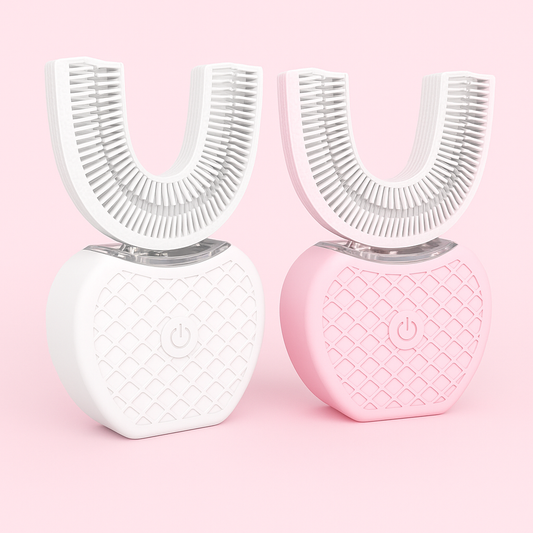Introduction
As a loving dog owner, nothing beats the joy of cuddling and playing with your furry companion. However, unpleasant dog breath can quickly put a damper on these cherished moments. Bad breath, or halitosis, is not merely a nuisance—it can be indicative of underlying health problems such as dental disease, gastrointestinal issues, or metabolic disorders. In 2025, with advancements in pet care knowledge and products, there are numerous effective home remedies and practical tips that can help you improve your dog's breath naturally while enhancing their overall well-being.
Understanding the Causes of Bad Breath in Dogs
Before diving into remedies, it’s essential to understand why dogs develop bad breath. Here are the most common causes:
- Poor Oral Hygiene: Plaque and tartar buildup harbor bacteria that produce foul odors.
- Gum Disease (Gingivitis/Periodontitis): Inflammation and infection of the gums can lead to bad breath and tooth loss.
- Dietary Factors: Certain foods or food particles stuck in teeth can cause odor.
- Digestive Problems: Issues like acid reflux or gastrointestinal imbalances can contribute to halitosis.
- Underlying Medical Conditions: Diabetes, kidney disease, or infections can manifest as bad breath.
- Oral Tumors or Foreign Objects: Abnormal growths or objects lodged in the mouth can cause odor and discomfort.
Recognizing these causes helps in choosing the right approach to improve your dog’s breath effectively and safely.
Comprehensive Home Remedies and Tips to Improve Your Dog’s Breath in 2025
Here’s a detailed guide to the best home-based methods to combat bad breath in your dog and promote excellent oral health.
1. Establish a Consistent Tooth Brushing Routine
Brushing your dog’s teeth remains the gold standard for preventing and reducing bad breath caused by plaque and tartar.
- Choose Dog-Specific Toothpaste: Never use human toothpaste; it contains ingredients harmful to dogs. Look for enzymatic toothpaste designed for canine oral health.
- Select the Right Toothbrush: Soft-bristled brushes designed for dogs or finger brushes help access all teeth comfortably.
- Start Slowly: Introduce brushing gradually—let your dog sniff and lick the toothpaste first, then gently brush a few teeth at a time.
- Frequency: Aim to brush daily, but at minimum 2-3 times weekly for noticeable improvements.
- Positive Reinforcement: Reward your dog during and after brushing with treats or affection to build a positive association.
Consistency is key—regular brushing disrupts plaque buildup and keeps breath fresher for longer.
2. Use High-Quality Dental Chews and Treats
Dental chews are specially designed treats that help reduce plaque and tartar as your dog chews, aiding breath freshness.
- Choose Approved Products: Look for dental chews that have veterinary dental association approval to ensure safety and efficacy.
- Consider Your Dog’s Size and Chewing Style: Select chews that suit your dog’s jaw strength and size to prevent choking or dental damage.
- Ingredients Matter: Avoid chews with artificial colors, flavors, or preservatives. Natural ingredients often offer better health benefits.
- Limit Frequency: Use chews as a supplement to brushing, not a replacement. Overuse can lead to weight gain or digestive upset.
Dental chews provide a convenient and enjoyable way to support oral hygiene between brushings.
3. Incorporate Vet-Recommended Water Additives
Water additives are liquid solutions added to your dog’s drinking water that help reduce oral bacteria and freshen breath without the need for brushing.
- Ease of Use: Simply add the recommended dosage to your dog’s water bowl daily.
- Natural Ingredients: Many contain natural antibacterial agents such as chlorhexidine, cetylpyridinium chloride, or essential oils.
- Check Compatibility: Ensure the additive is safe for your dog’s age and health status.
- Monitor Intake: Some dogs might be sensitive to taste changes; encourage drinking by refreshing water regularly.
Water additives are an excellent supplementary tool, especially for dogs resistant to brushing.
4. Feed Crunchy Fruits and Vegetables as Natural Toothbrushes
Incorporating certain crunchy fruits and vegetables into your dog’s diet can mechanically clean teeth and freshen breath while providing essential nutrients.
- Safe Options Include: Carrots, apple slices (without seeds), cucumber, and celery.
- Benefits: These foods help scrape off plaque and stimulate saliva production, which naturally cleanses the mouth.
- Portion Control: Cut into bite-sized pieces appropriate for your dog’s size to prevent choking.
- Avoid Toxic Foods: Never feed grapes, onions, garlic, or anything toxic to dogs.
Always introduce new foods gradually and observe for any digestive upset.
5. Support Digestive Health with Probiotics
Gut health plays a crucial role in oral health. Probiotics help maintain a balanced bacterial environment in the digestive tract, reducing bad breath caused by digestive issues.
- Select Canine-Specific Probiotics: Use formulations developed for dogs to ensure safety and effectiveness.
- Consult Your Veterinarian: Before adding supplements, especially if your dog has existing health conditions.
- Consistent Use: Probiotics often require several weeks to show benefits, so patience and consistency are important.
- Additional Benefits: Probiotics can also improve digestion, immunity, and overall vitality.
6. Create Safe Homemade Dental Solutions
If you prefer natural, DIY options, some homemade dental rinses and sprays can help reduce oral bacteria and freshen breath.
- Baking Soda Rinse: A mild solution of baking soda and water can neutralize acids and reduce bacteria. Use very diluted mixtures and apply sparingly.
- Herbal Sprays: Infusions of dog-safe herbs like parsley, mint, or chamomile can be used as breath fresheners.
- Consult Your Vet: Always verify that the ingredients and recipes are safe for your dog before use.
- Avoid Toxic Ingredients: Never use essential oils or substances toxic to dogs in homemade remedies.
Homemade solutions can be a cost-effective and natural way to support dental health, but should never replace professional care.
7. Schedule Regular Veterinary Dental Check-Ups
Despite the best home care, professional veterinary dental exams and cleanings remain essential for maintaining optimal oral health.
- Annual or Biannual Exams: Veterinarians can detect early signs of gum disease, infections, or other dental problems.
- Professional Cleanings: Deep cleaning under anesthesia removes tartar and plaque that home care cannot reach.
- Personalized Advice: Your vet can recommend specific products, dietary changes, or treatments based on your dog’s needs.
- Early Intervention: Timely treatment prevents progression of dental disease and related health complications.
Investing in regular veterinary care ensures your efforts at home are supported and effective.
Additional Lifestyle Tips for Optimal Oral Health in Dogs
- Stay Hydrated: Ensure your dog always has access to fresh water to promote saliva production, which naturally cleanses the mouth.
- Limit Table Scraps: Avoid feeding your dog sugary or sticky human foods that promote bacterial growth.
- Chew Toys: Provide safe chew toys that help mechanically clean teeth and satisfy chewing instincts.
- Observe and Act: Monitor for signs like excessive drooling, difficulty eating, pawing at the mouth, or persistent bad breath, and consult your vet promptly.
- Maintain a Balanced Diet: High-quality dog food rich in nutrients supports immune function and oral tissue health.
Common Myths About Dog Breath Debunked
Understanding misconceptions can help you take better care of your dog’s breath:
- Myth: Bad breath is normal in dogs. Fact: While some odor is natural, persistent foul breath indicates a problem.
- Myth: Chewing bones always improves breath. Fact: Cooked bones can splinter and cause damage; raw bones should be given cautiously.
- Myth: Oral health only affects the mouth. Fact: Poor oral health can contribute to heart, kidney, and liver diseases in dogs.
Conclusion
In 2025, keeping your dog’s breath fresh and healthy is more achievable than ever with a combination of effective home remedies, proper diet, and veterinary care. Establishing a regular tooth brushing routine, providing dental chews, using water additives, feeding natural crunchy snacks, supporting gut health with probiotics, and scheduling professional dental cleanings create a comprehensive approach to oral hygiene.
Remember, fresh breath is not just about comfort but also a window into your dog’s overall health. By prioritizing these strategies, you will not only enjoy more pleasant moments with your dog but also contribute to their long, vibrant, and happy life.
Start today—your dog’s smile (and breath) will thank you!


